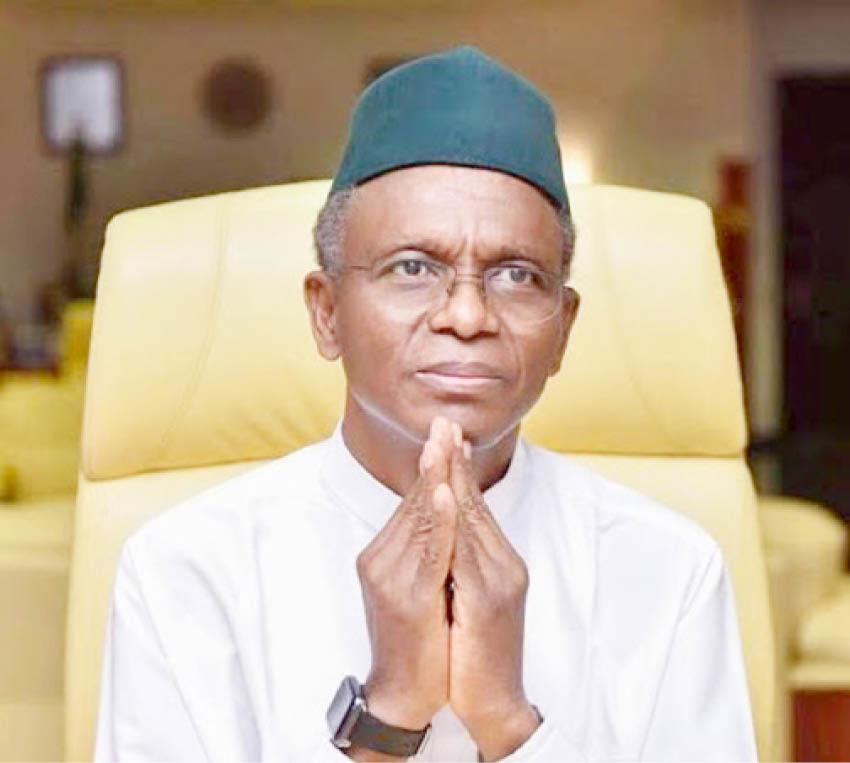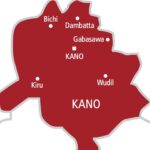When Governor Nasir el-Rufai of Kaduna State sacked over 36,000 workers and 4,466 traditional rulers in the state in his first tenure, not many reckoned that the action would have debilitating implications on the state’s security architecture. El-Rufai had in 2017, among others, sacked 21,000 teachers, over 4,000 LG workers and 8,000 from the state’s ministries, departments and agencies. In June of the same year, the government sacked 313 district heads and 4,453 village heads in what it called “restructuring of its traditional chiefdoms” to reduce the burden of a bloated payroll imposed on the local government councils.
However, four years after the controversial mass sack, the state government, recently sacked 4,000 workers which it claimed was due to depleting allocation from the Federation Account. The decision has, however, sparked outrage and condemnation as residents say the timing was inconsiderate.
Experts have made a direct link between unemployment and poverty with insecurity all over the world, and in Kaduna, the situation is not different as many have already linked the mass sack of workers and that of district and village heads to increasing security challenges in the state. Our correspondents report that with more people rendered jobless and traditional leaders who help keep crime at bay cast away, the tendency for crime to increase was high.

Speaking on the security challenge in the state and the implication since they were sacked in 2017, Ciroman Atyap and a former District Head of Jankasa from Atyap Chiefdom in Zangon Kataf Local Government Area, Abah A. Dawah, attributed the rising insecurity in the area to poverty and unemployment.
Dawah, who was one of the district heads sacked by El-Rufai in 2017 said: “Even though we have been disengaged as district heads, people, especially the youths, still show us some respect as one-time traditional leaders and they still seek our advice on some issues, but ours is only to advise them.”
He noted that they no longer possess the powers to act as mediators because they no longer hold any traditional office. “I believe this has also contributed to the present security problem in the state,” he said.
The former district head said apart from unemployment, the presence of government is not felt by the people.
“The government is not providing any support, but leaving communities and development associations to source for any kind of support.” He further urged the government to be serious in dealing with perpetrators of crime by ensuring they face open trials when arrested.
Even though Kaduna State government had recently justified its recent mass sack of workers with statistics indicating that a chunk part of what is received from the Federation Account Allocation Committee (FAAC) goes into payment of salaries, many have ignored the figures and instead, tagged the government as insensitive to the economic plight of families at such a trying period.
The Kaduna State government had stated that in November 2020, it had only N162.9m left in its account after paying salaries from the N4.83bn it got from the FAAC and paid N4.66bn as wages. “In the last six months, personnel costs have accounted for between 84.97% and 96.63% of FAAC transfers received by the Kaduna State government. In March 2021, Kaduna State had only N321m left after settling personnel costs.”
It further said that, “In March, the state got N4.819bn from FAAC and paid out N4.498bn, representing 93% of the money received. This does not include standing orders for overheads, funding security operations, running costs of schools and hospitals, and other overhead costs that the state has to bear for the machinery of government to run, for which the state government taps into IGR earnings.”
Citizens however wonder the rationale behind the sack of workers even with a robust IGR of N50 billion and the claim by the government of not relying on funds from the federation account.
Speaking on the state’s IGR, an activist, Comrade Abdulrahman Usman, said: “The governor had declared how his government is generating its own money through Internally Generated Revenue and how the state is not dependent on federal allocation. Why then is he now relating the mass sack of workers to lean allocations from the federal account? The civil servants are the ones that have helped to increase the IGR of the state to about N50 billion.”
For the recently sacked workers, an unplanned disengagement letter before their time of retirement is an indication of shattered dreams and hopes. Malam Bashir Kachia, one of the affected workers with the Works Department in Kachia Local Government Area of the state said he had worked for 19 years before his dreams were shattered by a disengagement letter.
“I started working in 2002 at the local government. I’m married with six children and my first daughter just got admission into the university. I was so excited to finance her education, but my dreams were shattered when I received my sacked letter,” he said.
The father of six expressed sadness at the unexpected sack, saying, “That was the only job I did and was my only means of livelihood apart from teaching Quranic knowledge in my local mosque. My remaining five children are also in school and now I don’t know if I can continue to sponsor their education, but I am faithful that Allah will see us through.”
He lamented that about 20 workers were affected from his department and called on the government to ensure prompt payment of their emoluments.
Another affected worker in Kaduna South Local Government Area who pleaded anonymity said he had worked with the state government for 20 years before his disengagement. The father of five who said his children were still in school also said he was devastated over the sack letter, adding that, “The government said only those with a certificate below diploma will be sacked and I have a diploma so I don’t know why my appointment was terminated.
“I saw those with degrees and HNDs too that were affected, even though we re-forwarded our certificates for them to rectify the problem. But as we speak, I’m in great pain particularly now that Ramadan is here and you have a family with no job or money to take care of them,” he said.
For Comrade Abdulrahman Usman, the mass sack is very unfortunate and he opined that Governor El-Rufai’s policies have proved to be anti-people with mass sack of workers without following the rules of engagement.
“The most unfortunate thing is that people are being sacked without a procedure in place, and their emoluments are not being paid. Even people that were sacked in 2017 and 2018 have not received their gratuity and pension,” he said.
Usman, an activist, stressed that security and welfare are the basis of any government, but, according to him, “That does not appear to be the business of this government.”
He lamented that places of small and medium scale businesses are being run down and demolished without providing alternatives for them, stressing that all these would have cumulative implication of the state’s security. “Don’t forget that when you sack a family, it affects, as an African, 10 different persons and when you multiply the total number of people that have been sacked in Kaduna today, one can say it has affected over a million people in a state of about eight million.”
With the mass sack of workers, coupled with past disengagement of workers and traditional rulers, as well as demolition of small business sites, one would say Kaduna has a long way to go in addressing mass unemployment which may have catastrophic implications on the security of the state.

 Join Daily Trust WhatsApp Community For Quick Access To News and Happenings Around You.
Join Daily Trust WhatsApp Community For Quick Access To News and Happenings Around You.


